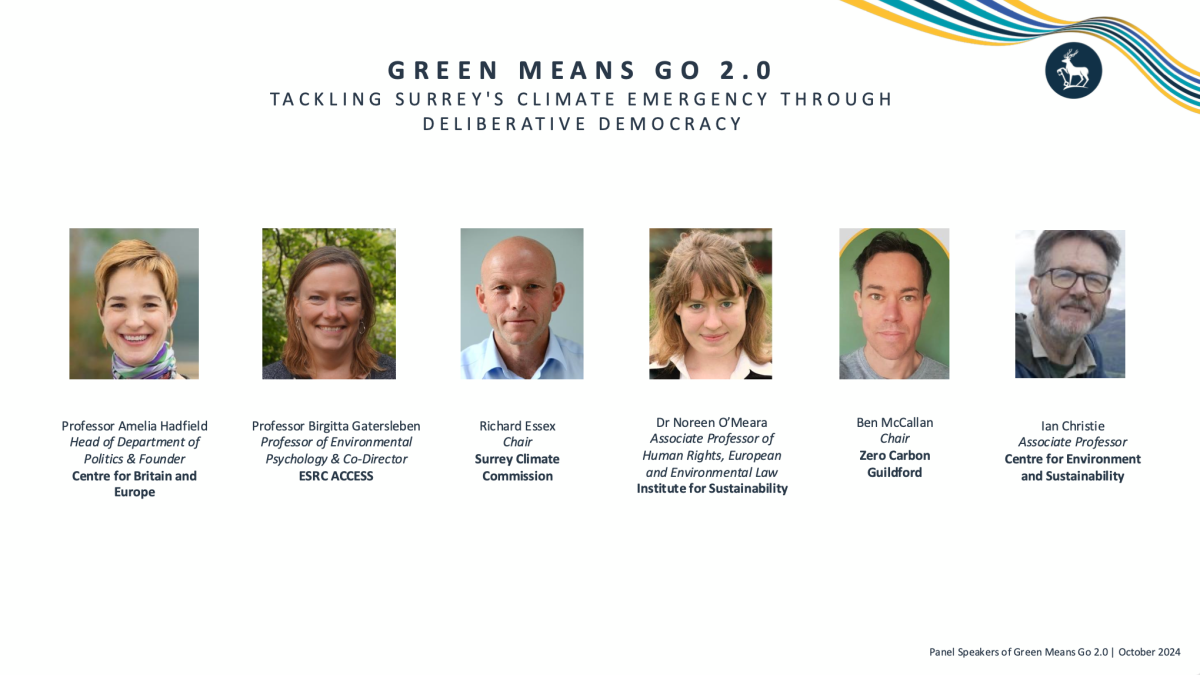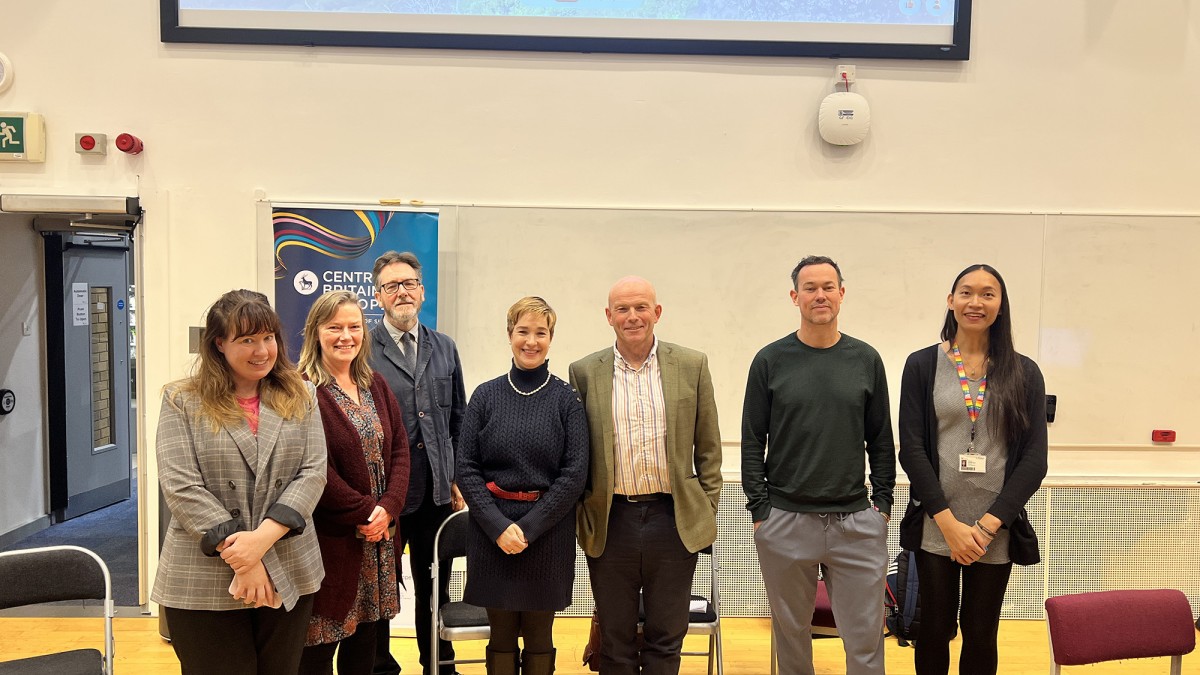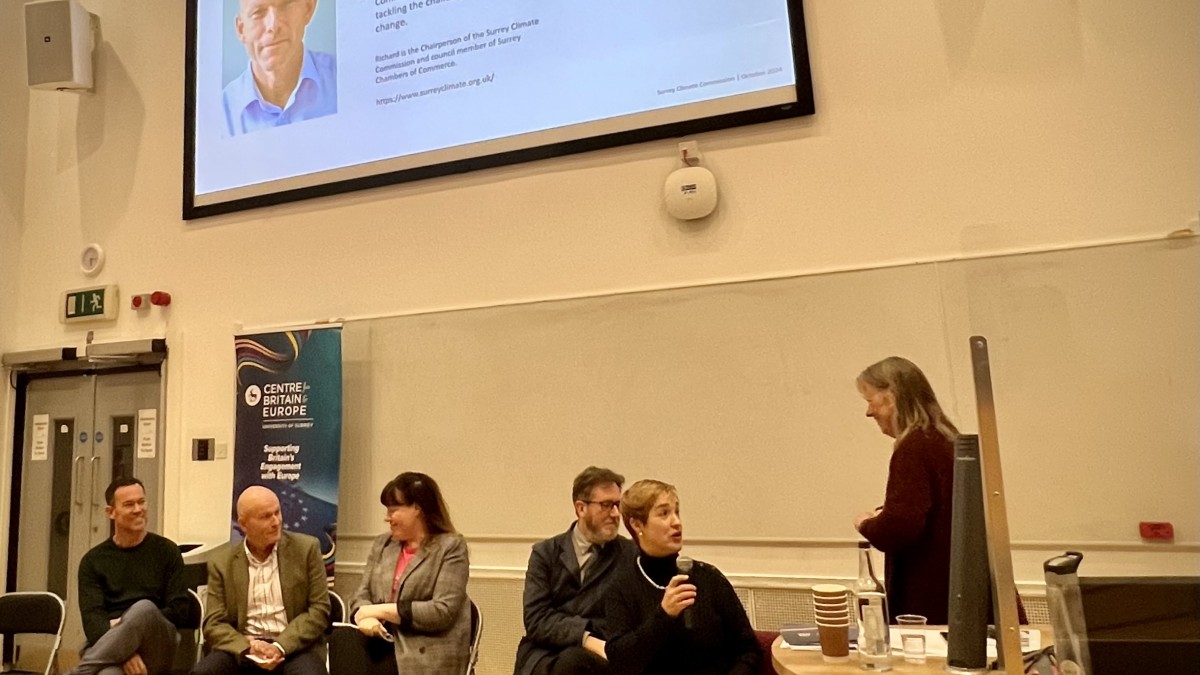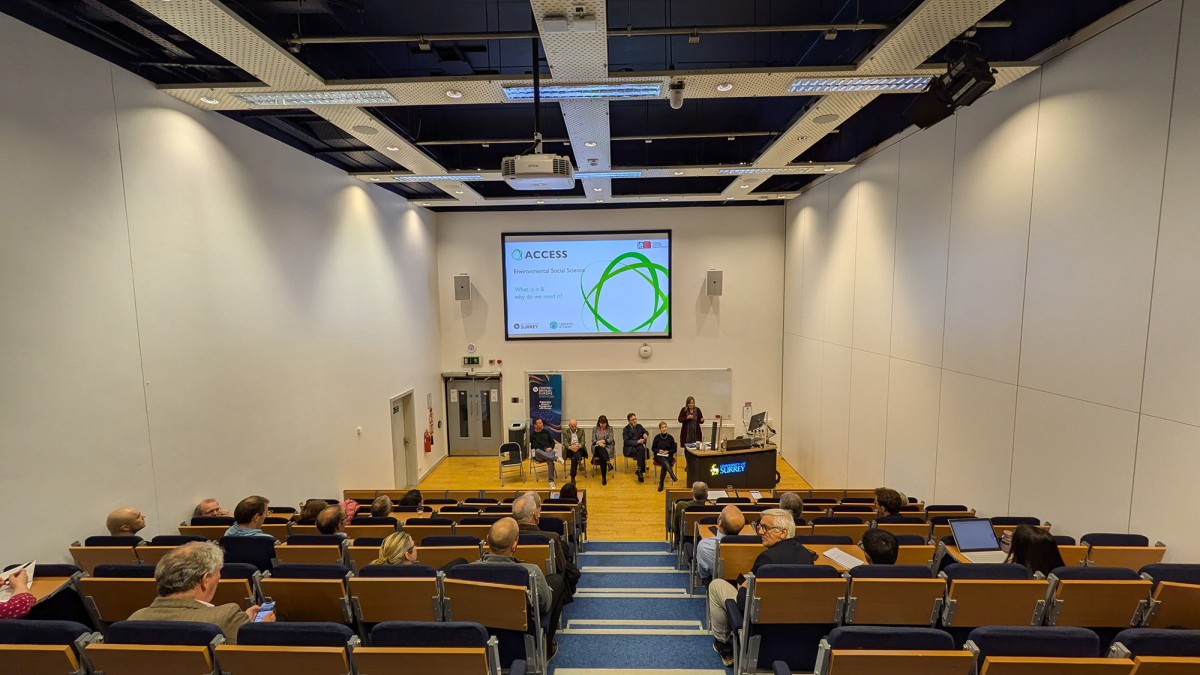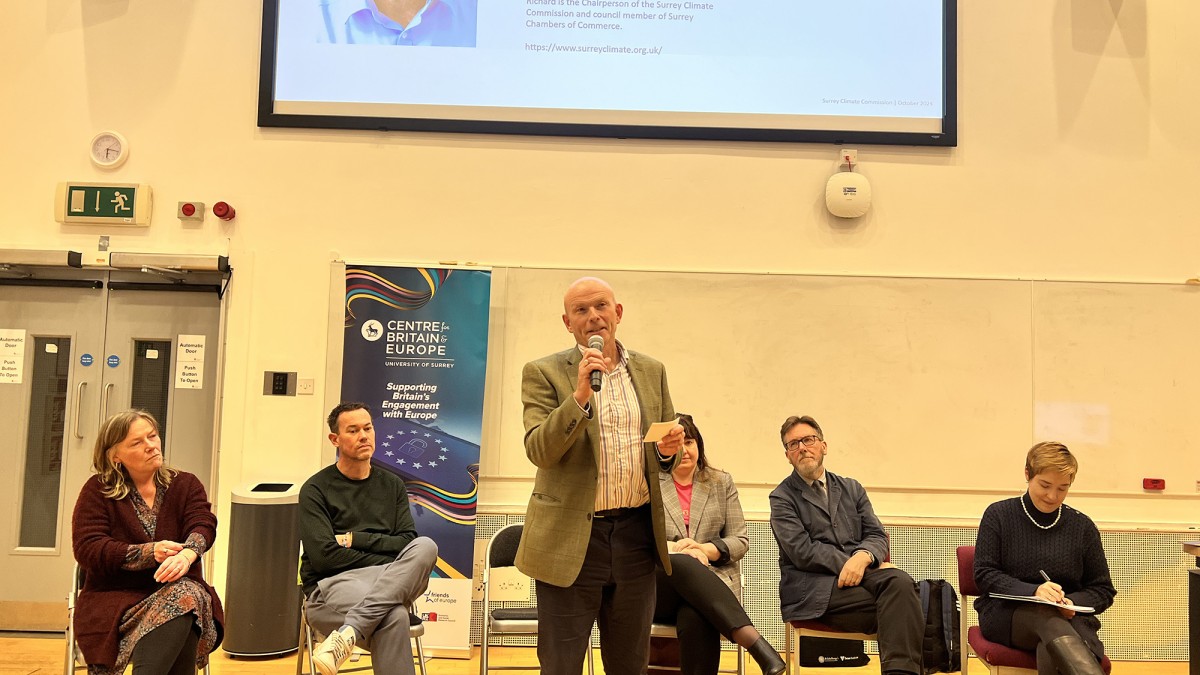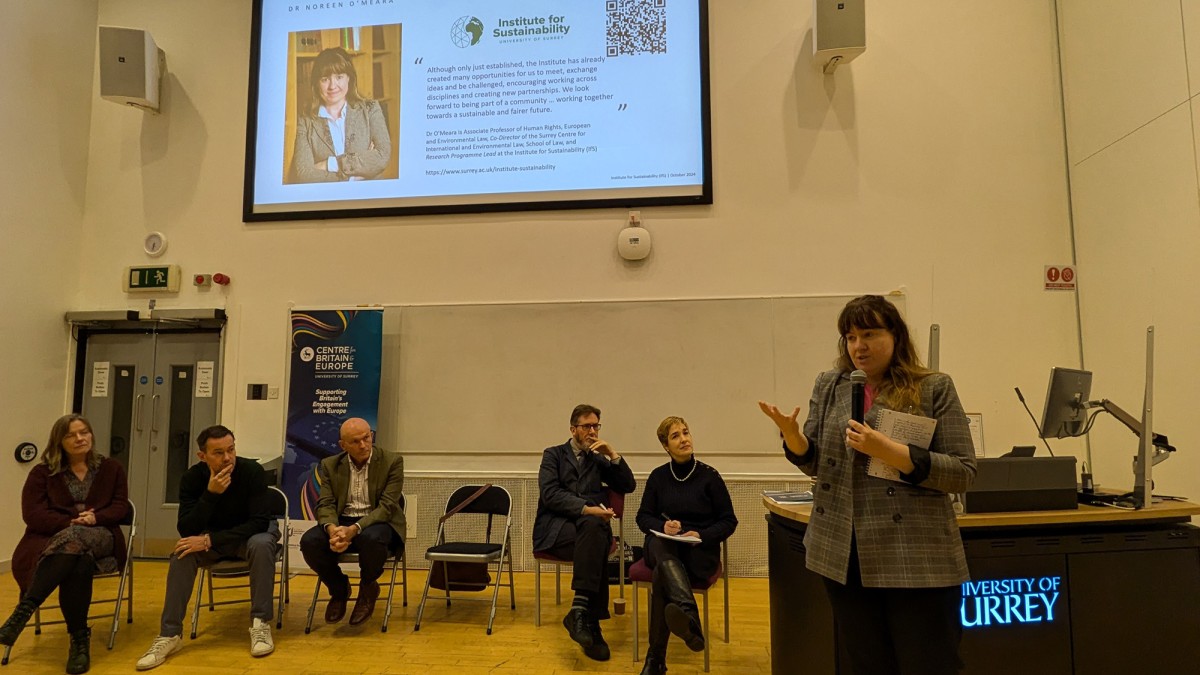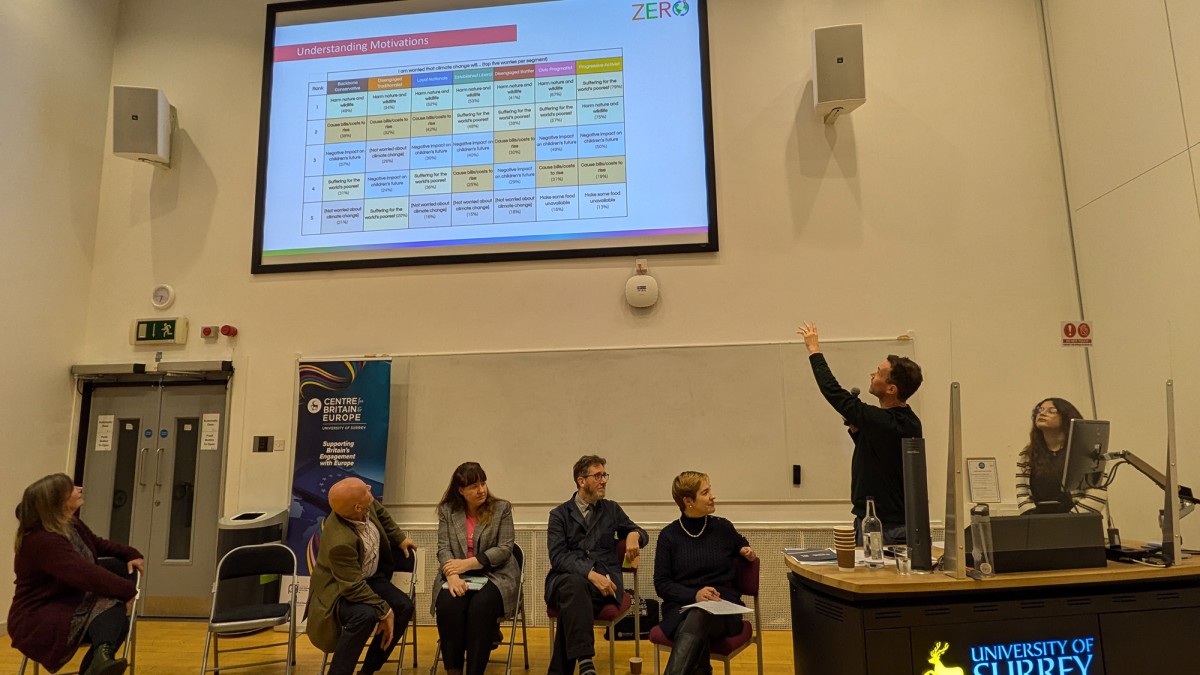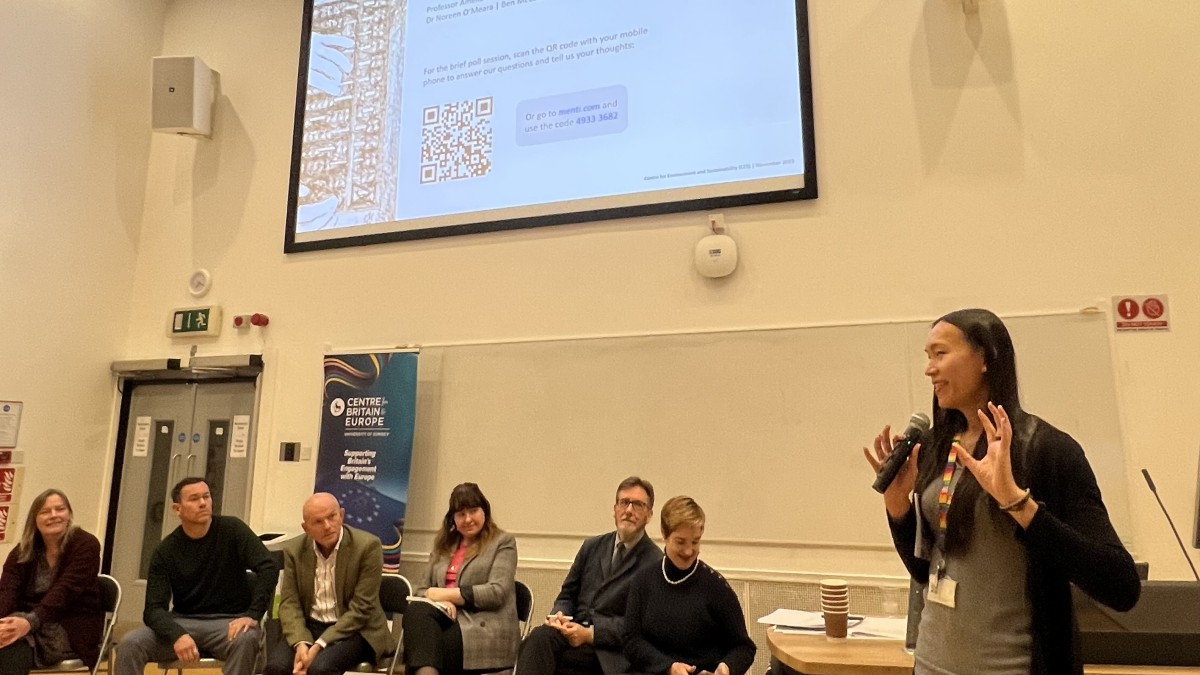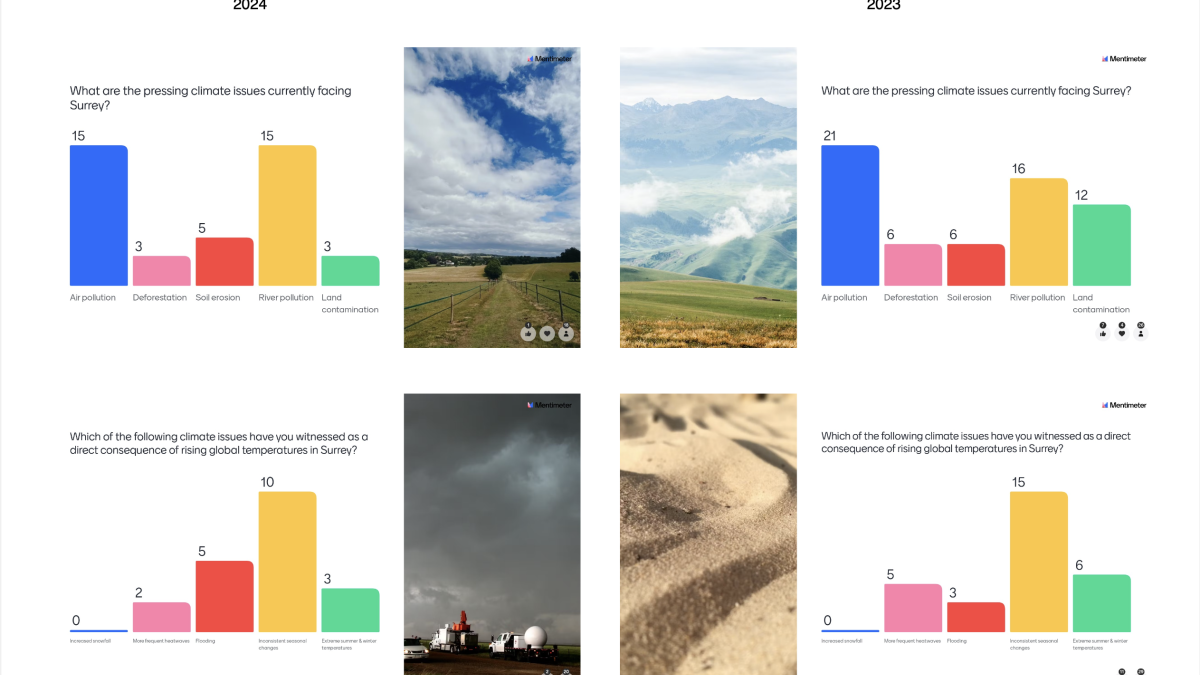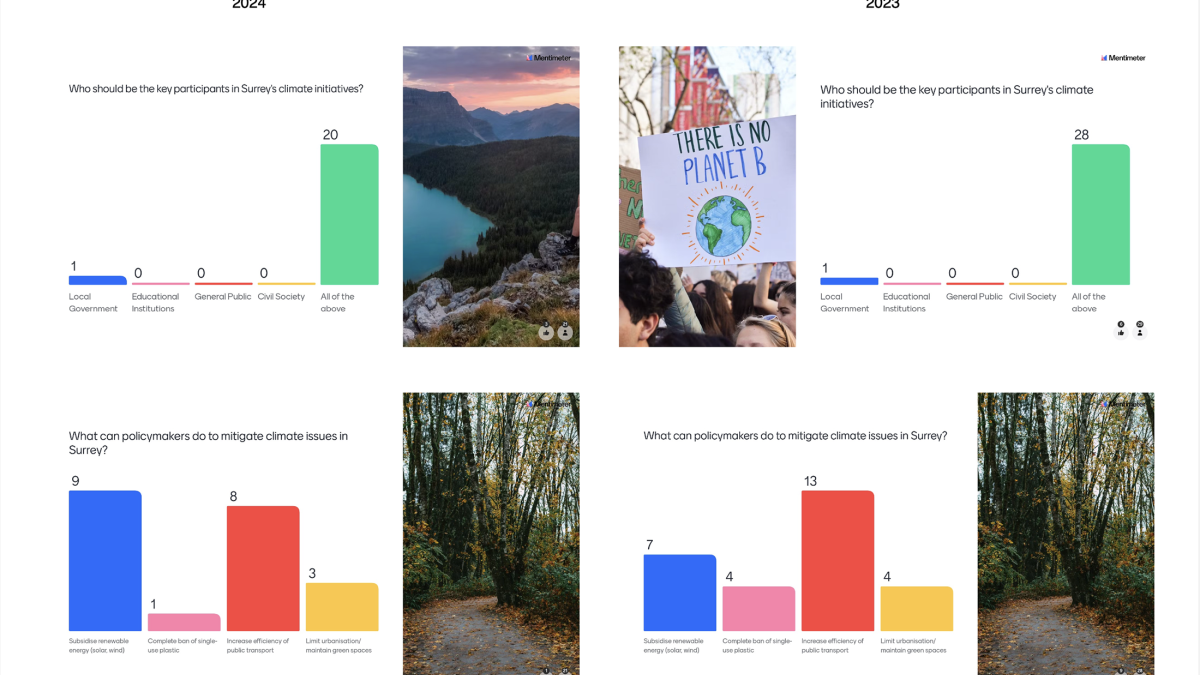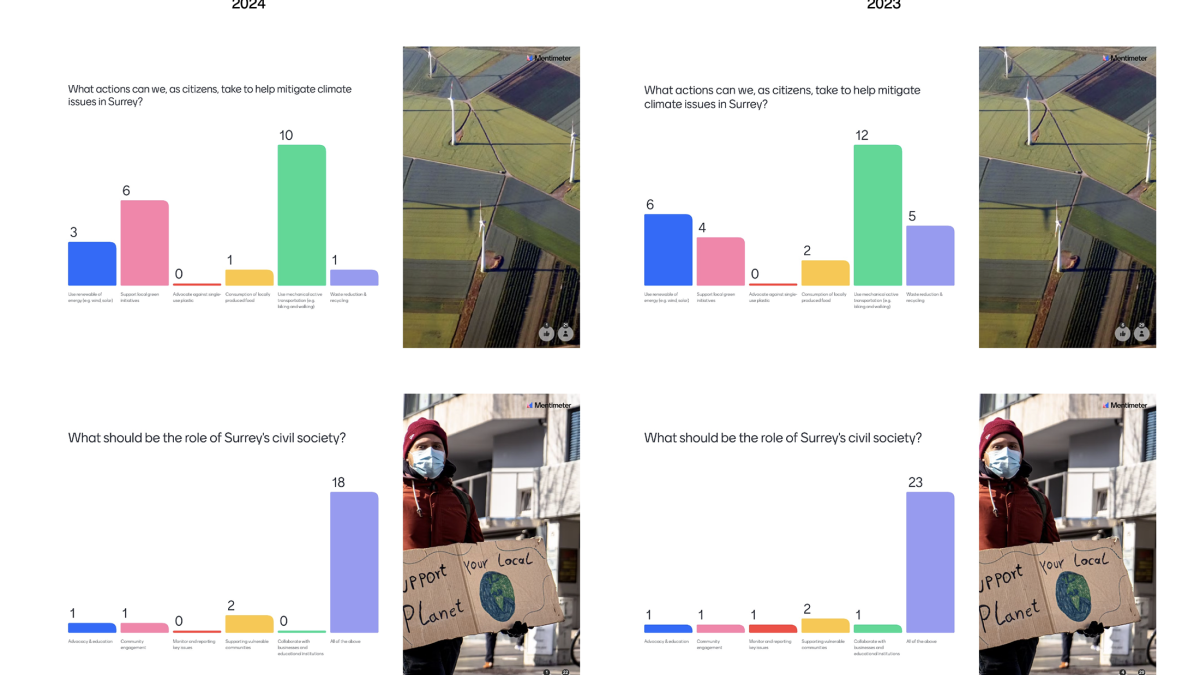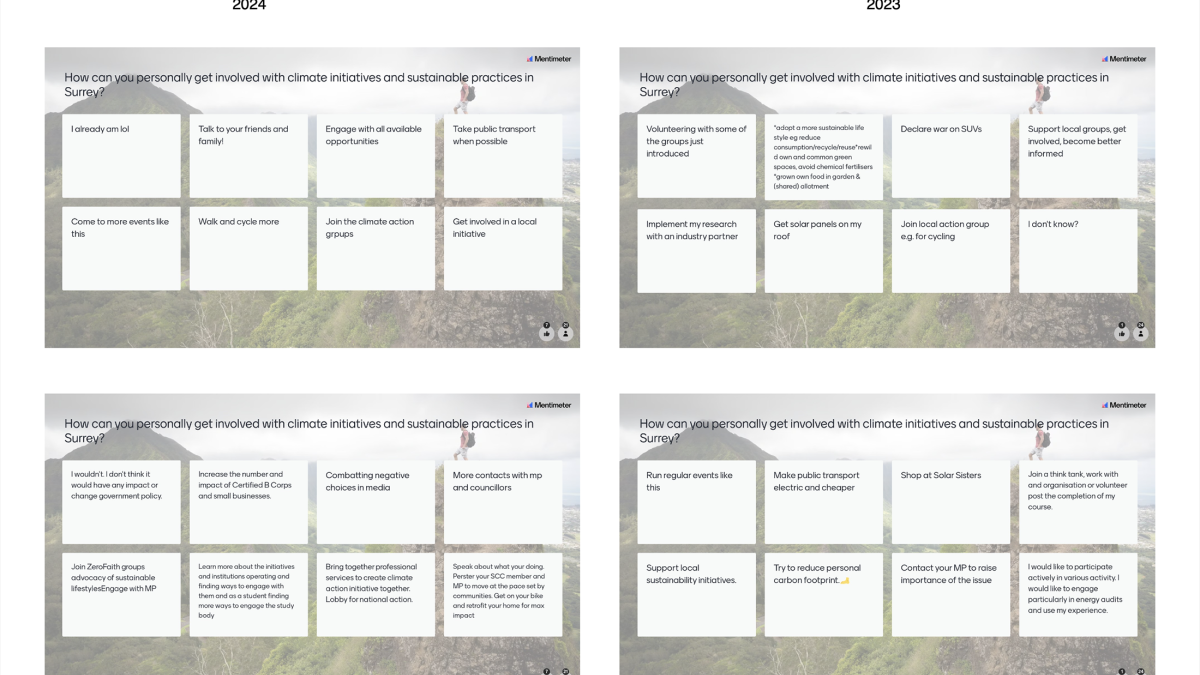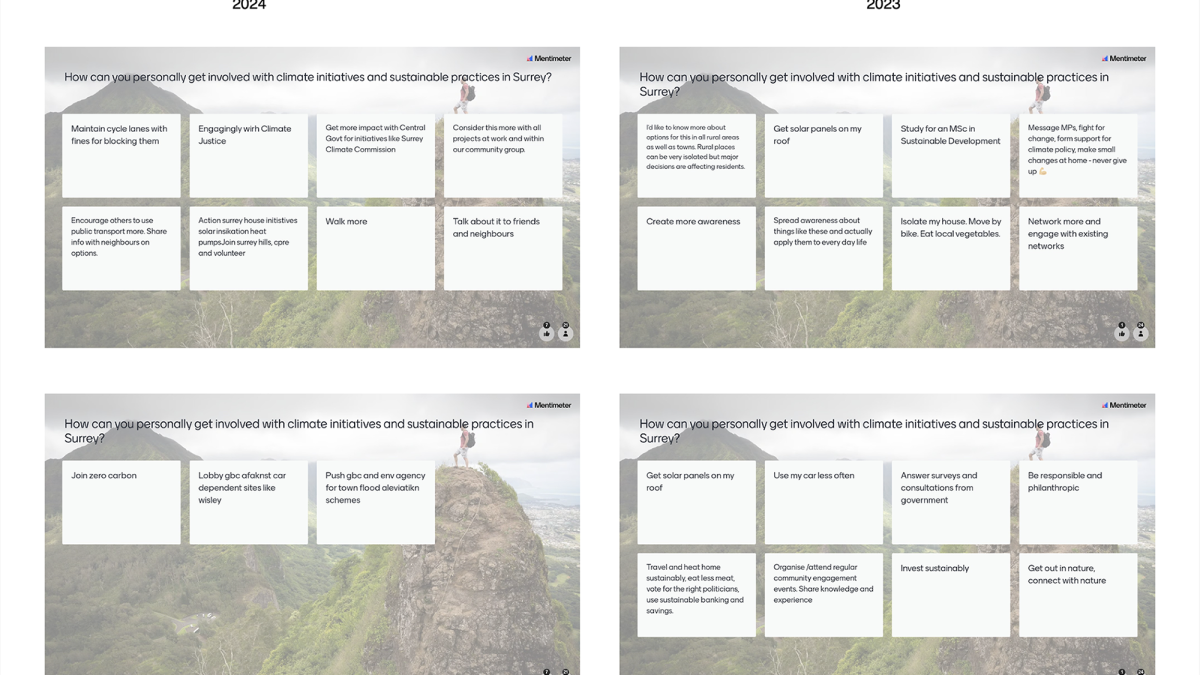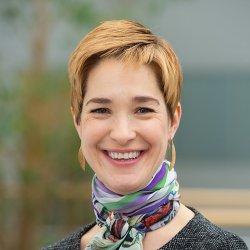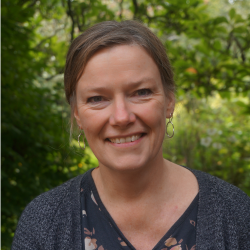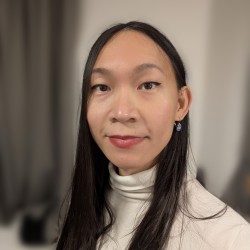“We Can Change Things”: Centre for Britain and Europe Hosts Experts and Community for Second Annual Evening of Climate Action
On the 24th of October 2024, the Centre for Britain and Europe (CBE) brought together academics, community leaders and members of the public to talk climate strategy for the second consecutive year at Green Means Go 2.0. Slides are accessible HERE.
After an enthusiastic turnout for the CBE’s inaugural climate event in 2023, Green Means Go 2.0 sought to build upon public interest in working across disciplines and professions towards ecological solutions tailored to Guildford and Surrey.
The event, hosted by CBE Founding Director Professor Amelia Hadfield and Business Director Maya Chew, featured five guest panellists representing a range of critical sectors, from academia to charities to government.
“Decisions often leave people out.”
Professor Birgitta Gatersleben, who is also the Co-Director of the ESRC-funded ACCESS project drew upon her background in environmental psychology in a presentation that largely highlighted the potential for interdisciplinary collaboration on climate and sustainable practices.
“Decisions often leave people out,” said Professor Gatersleben, as she emphasised the need to evaluate “social dimensions of environmental issues,” including inequality and diversity. She drew attention to new databases, such as the ACCESS NEMO map tool, that facilitate knowledge exchange opportunities and allow users to identify partners for policymaking.
A key endorsement for such cooperation came from fellow speaker Richard Essex, whose work as an independent financial adviser and chair of the Surrey Climate Commission (SCC) informed his strategic approach to building coalitions around a shared cause.
“There is far more that we have in common than what actually divides us,” said Essex, describing how the commission’s initiatives connect people “you wouldn’t expect to be talking to each other.”
Essex attached particular importance to continued dialogue given how difficult it can be to reach a large demographic in Surrey that doesn’t deny climate change, but also feels unsure of what course of individual action will lead to a difference.
As Essex detailed how the SCC joined forces with the university to create a carbon baseline report and helped independent initiatives apply for small grant funding through the county council, his message to the audience focused on pragmatic and actionable steps in the short term, with an aim to reassure stakeholders that “it’s not impossible and we can change things.”
“Doom and gloom don’t lead to partnership and solutions.”
Surrey Centre for International and Environmental Law (SCIEL)Co-Director and Research Programme Lead at the Institute for Sustainability Dr Noreen O’Meara held this optimistic momentum with her presentation theme of “good news” in the face of daunting challenges. The legal expert cautioned that “doom and gloom don’t lead to partnership and solutions.”
During her presentation, the Surrey professor described her new module, which invites law students to explore litigation as a catalyst for international climate cooperation. O’Meara described the “shock on students’ faces” at the start of the semester when they realise “how much work needs to be done” in the field of climate law.
Having herself advised the UN on providing advice on climate messaging to member states, she addressed the importance of not only securing government support for climate reports, but also stirring decision makers to action to implement researchers’ findings.
In the same way, Dr O’Meara’s teaching emphasises the potential of climate litigation as a “ripe area for inspiration and action.” From a new plastics pollution treaty due to be agreed later this year to primary school programmes that make young people “excited and aware” about how they can help, Dr O’Meara left the audience with reasons for optimism.
Ben McCallan, chair of Zero Carbon Guildford and a senior climate officer at Surrey County Council, underscored the need to seize upon that same optimism when creating messages at the local level. He described research that counters notions of pervasive apathy and instead reveals an “overwhelming want to do something.”
The challenge, according to McCallan, is often bridging the gap between that want and the action required to act upon it. Because climate messaging may fall flat among target audiences that feel alienated, he called for smart identification of shared motivations and values.
“Mixed rural-urban area”: Surrey could be a trailblazing case study for other regions
As an associate professor at Surrey’s Centre for Environment and Sustainability, Ian Christie joined McCallan in identifying areas for improvement. He said disparities frequently emerge between overarching net zero policy and the smaller-scale planning required to put it into effect. In the same way, murky notions of which body of government is responsible for implementation can hinder timely progress, according to Christie.
Considering the relevance of these roadblocks, Christie suggested Surrey would be a good candidate for research on this subject as a “mixed rural-urban area” where pockets of deprivation persist within this highly affluent county. He posited that the creation of a “local climate constitution” at the county level would help establish a firm commitment upon which diverse actors could take joint action.
Following the round of presentations, audience members were invited to pose questions. In response to some participants’ concerns about action happening too slowly and the persistence of climate denial among parts of English society, speakers reminded listeners of their personal influence.
O’Meara, the law reader, cited buying power and the ballot box as key means of shaping who is “profiting from our decisions” and “holding elective representatives accountable.” Given this, she and her fellow speakers concluded, progress would move forward despite real but surmountable obstacles, closing the event with the heartening overtones that defined the evening: “We shouldn’t lose hope.”
Changes in Climate Opinions
Authored by Nikolai Kutsch
Edited by Maya Chew
Related sustainable development goals



